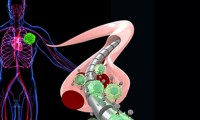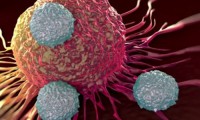-
Magnetic Wire Detects Cancer Cells in Flowing Blood
- Source: The Verdict
- 601
- July 21, 2018
-
Viz.ai Develops AI Software to Detect Stroke
- Source: FierceBiotech
- 817
- July 20, 2018
-
Hackers Breach LabCorp Network, Patient Records at Risk
- Source: HealthcareIT News
- 844
- July 20, 2018
-
Genetic Disorder Cured in Utero Using Gene-Editing Technique
- Source: drugdu
- 474
- July 19, 2018
-
New Molecule Designed to Fight Cancer
- Source: ScienceDaily
- 750
- July 19, 2018
-
Electrocore Releases Gammacore Therapy against Migraine and Episodic Cluster Headaches
- Source: FierceBiotech
- 764
- July 19, 2018
-
Recent Study Reports on Liver Cancer Risks and Detection
- Source: Healio
- 562
- July 19, 2018
-
TREAT-B – Blood Test to Detect Hepatitis B Well in Advance
- Source: MedIndia
- 401
- July 18, 2018
-
MRSA Initiates Infection Using Nonthreatening Bacteria in Skin
- Source: ScienceDaily
- 517
- July 18, 2018
your submission has already been received.
OK
Subscribe
Please enter a valid Email address!
Submit
The most relevant industry news & insight will be sent to you every two weeks.













